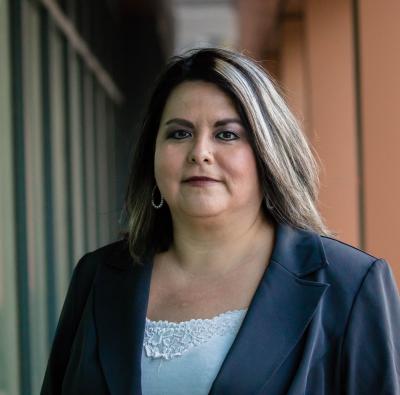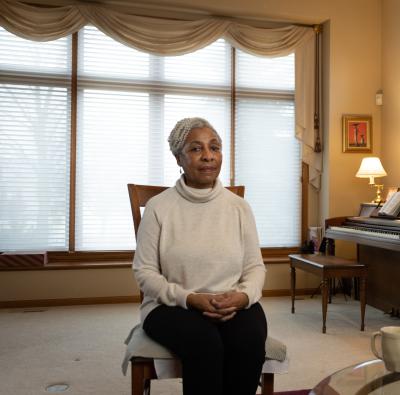The Senate Ethics Committee (Ethics Committee) just released its annual report for 2023. For 13 months, the public has had no idea what the Ethics Committee has been doing. Despite the long wait, and a prominent ethics scandal surrounding a committee chairman, the annual report reveals that we haven’t missed much. Once again, the Ethics Committee...
In the 14 years since the Supreme Court’s decision in Citizens United v. FEC, spending by super PACs and other outside (supposedly independent) groups has skyrocketed, with most experts expecting the 2024 election to break spending records.
Yet as this spending has increased, the Federal Election Commission (FEC), the agency responsible for...
Campaign Legal Center (CLC) joins the legal community, friends, family and colleagues in mourning the loss of Charles Fried — an esteemed scholar and longtime Harvard Law School professor, former Solicitor General and model of nonpartisan commitment to effective democracy.
Professor Fried served on CLC’s Board of Directors from 2016 to 2021...
After receiving CLC’s letter asking that the Judicial Conference’s September 2023 Report of the Proceedings be made public, the Judicial Conference provided the smallest glimmer of hope that it is taking enforcement of Justice Thomas’s Ethics in Government Act (EIGA) violations seriously — it provided an update in the newly released Report of the...
Voters have a right to know who their elected officials are and what or who may influence them. That is why CLC filed a complaint against Representative Andy Ogles of Tennessee with the Office of Congressional Ethics (OCE).
Rep. Ogles’ financial disclosure reports appear to include over $1 million in financial discrepancies, including his failure to...
On New Year’s Eve, Chief Justice John G. Roberts, Jr. shared his 2023 Year-End Report on the Federal Judiciary (Report). In past years, Chief Justice Roberts’ reports provided relevant historical context for an issue that concerned the federal courts in that year.
To many observers, it seemed obvious that 2023’s Report would address ethics: The...
Campaign Legal Center (CLC) is pleased to announce that Senior Vice President and Legal Director Adav Noti has been named the organization’s Executive Director, effective January 1, 2024. In this role, Adav will lead CLC’s programmatic activity and operations as CLC executes a multi-faceted strategy to protect our democracy during a pivotal...
Americans looking at their elected officials might struggle to find anyone who genuinely shares their life experiences and day-to-day concerns, as most of our presidents, senators, and members of Congress have been (and continue to be) independently wealthy, and the number of candidates self-funding their campaigns is on the rise.
A Pew Research s...
By Michael Carter, NARF Staff Attorney, and Mel Neal, Legal Fellow at CLC.
North Dakota has a long and ongoing history of discrimination against Native Americans, including denying Native voters an equal voice in the state’s elections.
Until 1922, North Dakota barred most Native people from voting. Even after North Dakota finally allowed Native...
American elections have many built-in processes for verification and review before, during and after a vote is cast. This is especially true when voting by mail.
After a voter fills out and returns a mail ballot, it goes through a host of steps prior to being counted and election results being released to the public. These steps are known as...
Felony disenfranchisement laws, which take away someone’s freedom to vote if they have been convicted of a felony, are the biggest remaining obstacle to a truly inclusive and equitable democracy in America.
These laws proliferated in the United States as an intentional scheme to strip Black Americans of their freedom to vote and continue to...
Ethics commissions at the state and local levels serve a crucial role in democracy by providing trainings to ensure government officials in every state, city and municipality know how to follow laws and rules that preserve public trust in government.
Government employees are not the only ones who benefit from ethics training. Journalists...
As state houses across the country wrap up their 2023 legislative sessions, several states have taken important steps to update their election laws to conform with the new Electoral Count Reform Act of 2022 (ECRA). Colorado, Indiana, Kansas, North Dakota, Nevada and Michigan enacted legislation this year that aligns their timelines for presidential...
Rep. George Santos has become the sixth member in the history of the House of Representatives to be expelled from the chamber. After two failed attempts to expel him, the third time stuck.
What made the third time a charm? A deeply incriminating report, issued by the House Ethics Committee, detailing the extent of his wrongdoing.
It would be hard...
A new report from Campaign Legal Center (CLC) examines one of the main issues undermining voters’ ability to equitably and meaningfully participate in our democracy: Unchecked coordination between candidates’ campaigns and supposedly independent election spending groups, like super PACs and dark money nonprofits, which pour billions of dollars into...
The freedom to vote and to make your voice heard is critical to the health of our democracy. Michigan’s legislature just took major steps forward to ensure its voters can have their voices heard and respected in future elections.
This session, Michigan lawmakers have passed major pro-democracy bills to help ensure the state is ready for the 2024...
On November 13, the Supreme Court of the United States released a "code of conduct" that would seem to govern the behavior of its justices. Coming at the end of a year plagued with reporting on ethical lapses and missteps by these justices, Campaign Legal Center and others who have been long calling for such news should have seen cause to celebrate...
Campaign Legal Center (CLC) has long been calling for ethics reform at the U.S. Supreme Court. After all, justices are appointed for life, but there is little structure in place to hold them accountable when ethics concerns arise and little guidance in place for the justices to follow.
Following a growing national concern (and multiple scandals...
In an op-ed for The Hill, Campaign Legal Center President and Founder Trevor Potter takes a closer look at the risks associated with artificial intelligence (AI) being used to create political communications and advertising as we head into the 2024 elections. Potter’s op-ed makes the point that the ease with which AI technology can be used to make...
As an independent, nonpartisan entity, the Office of Congressional Ethics (OCE) investigates allegations of ethical misconduct made against members of the House of Representatives and their staff. The OCE is essential to both actual enforcement of the law and maintaining transparency regarding these investigations.
But a problematic trend has...
Last week, Rep. Mike Johnson — a “key architect of Republicans’ objections to certifying Mr. Biden’s victory on Jan. 6,” according to the New York Times — was elected speaker of the U.S. House of Representatives.
It’s important to understand that our elections are safe, secure and accurate. Yet someone who refuses to acknowledge the legitimacy of...



